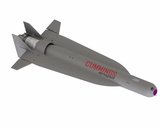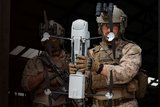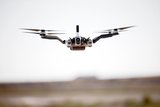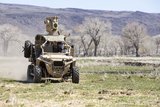UCLASS air vehicle contracts awarded
Four Preliminary Design Review (PDR) contracts have been awarded by the US Navy for the Unmanned Carrier Launch Airborne Surveillance and Strike (UCLASS) air vehicle segment.
It was announced on 15 August that the $15 million fixed-price contracts were awarded to Boeing, General Atomics, Lockheed Martin and Northrop Grumman, all of which are anticipating the release of a draft RfP for the development programme at the end of September.
According to the navy the air vehicle PDR contracts will run for approximately nine months, with work expected to be completed in June 2014.
‘The PDRs are intended to inform the navy of technical risk, cost and design maturity of the air segment, and allow the industry teams to better understand the programme’s requirements across the entire UCLASS system to expeditiously deliver the unmanned carrier-based system to the fleet,’ Charlie Nava, the navy’s UCLASS PM, said in a statement.
The UCLASS system is set to provide a persistent surveillance carrier-based ISR and targeting precision strike capability for the navy.
The draft RfP for development at the end September will eventually lead onto a final RfP expected to be released in the first quarter of 2014. Depending on the team that is selected, the number of air vehicles could vary, as could the IOC date, although UCLASS is scheduled to be operational by 2020.
All vendors for UCLASS are to be given Government Furnished Information derived from the navy’s X-47B Unmanned Combat Air Systems Demonstrator (UCAS-D) effort, which is currently nearing completion.
The demonstrator has been tested by the navy and has conducted a trial arrested landing of a UAV on-board a carrier.
The bidders are competing for UCLASS with the following designs: Lockheed Martin with its Sea Ghost concept; Boeing with its X-45C Joint UCAS; Northrop Grumman with the X-47B UCAS; and General Atomics with the Sea Avenger.
More from Uncrewed Vehicles
-
![Cummings Aerospace showcases Hellhound loitering munition designed for US Army’s LASSO programme (video)]()
Cummings Aerospace showcases Hellhound loitering munition designed for US Army’s LASSO programme (video)
Cummings Aerospace presented its turbojet-powered Hellhound loitering munition at SOF Week 2025, offering a man-portable solution aligned with the US Army’s LASSO requirements.
-
![SOF Week 2025: PDW unveils attritable FPV drone for SOF operations at scale]()
SOF Week 2025: PDW unveils attritable FPV drone for SOF operations at scale
PDW has revealed its Attritable Multirotor First Person View drone at SOF Week 2025, offering special operations forces a low-cost, rapidly deployable platform for strike and ISR missions, inspired by battlefield lessons from Ukraine.
-
![SOF Week 2025: Teledyne FLIR white paper provides guidance on reusable loitering munitions]()
SOF Week 2025: Teledyne FLIR white paper provides guidance on reusable loitering munitions
Teledyne FLIR is highlighting the emerging requirements for 'recoverable and re-usable' loitering munitions across the contemporary operating environment during this week’s SOF Week conference in Tampa, Florida.
-
![SOF Week 2025: Kraken Technology group debuts K3 Scout USV in North America]()
SOF Week 2025: Kraken Technology group debuts K3 Scout USV in North America
High-performance maritime industry player Kraken Technology Group, based in the UK, has used the SOF Week conference in Tampa, Florida this week to debut its K3 Scout uncrewed surface vessel (USV) to the North American market.
-
![Palladyne AI and Red Cat to demonstrate capabilities for autonomous drone swarms to the US military]()
Palladyne AI and Red Cat to demonstrate capabilities for autonomous drone swarms to the US military
Red Cat and Palladyne AI recently conducted a cross-platform collaborative flight involving three diverse heterogeneous drones.
-
Jammer resistant drone designs spark search for countermeasures
The Russia-Ukraine conflict has driven another stage of evolution for drones and the counter measures to defend against them.

























